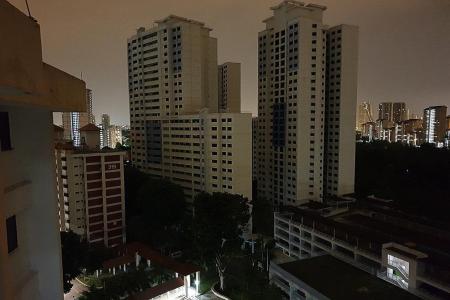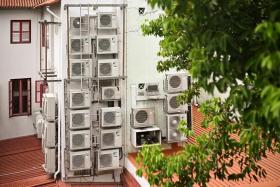Like water, ensuring energy security vital: Tan Wu Meng
Singaporeans may know how crucial water security is to the Republic's survival, but they also need to keep an eye on its energy security.
After all, the country's water facilities such as Newater and desalination plants require large amounts of energy to operate, Senior Parliamentary Secretary for Trade and Industry and Foreign Affairs Tan Wu Meng said yesterday.
Energy security was thrust further into the limelight after Tuesday's power outage, he said at the Energy Innovation event organised by the Energy Market Authority (EMA).
"I was up late that night after meeting some of my residents and saw the social media reports. And (I) also saw the many e-mails and WhatsApp messages from the EMA team, which was working hard throughout the night," he said.
At the event, a $15 million research grant was awarded to academics from a range of institutions to improve the resilience of Singapore's power systems and energy markets.
The seven projects, chosen by EMA and scheduled to end by 2021, will be carried out in collaboration with industry players and use technology such as artificial intelligence.
The Government is extending the SkillsFuture Earn and Learn Programme to graduates from polytechnics and the Institute of Technical Education who are pursuing power-engineering roles in the public sector, giving each individual $5,000.
MANY NEW PROGRAMMES
This, said Dr Tan, is the first of many new programmes that power-engineering workers in the public sector can expect.
On the seven projects that are receiving $15 million in total, EMA chief executive Ngiam Shih Chun said the power industry must ride on emerging trends transforming the energy sector, such as smart grids.
"While Singapore has one of the world's most stable and reliable power systems, this cannot be taken for granted," he said.
The institutions involved in the projects include the National University of Singapore and Nanyang Technological University. One of the projects aims to create software that analyses large and complex power systems by machine learning, allowing it to immediately detect attacks on the network.
Get The New Paper on your phone with the free TNP app. Download from the Apple App Store or Google Play Store now



